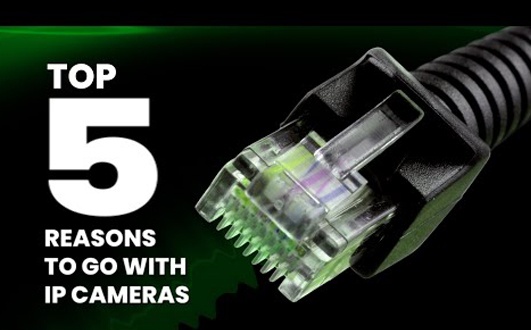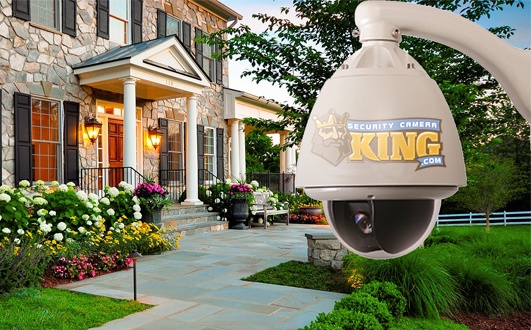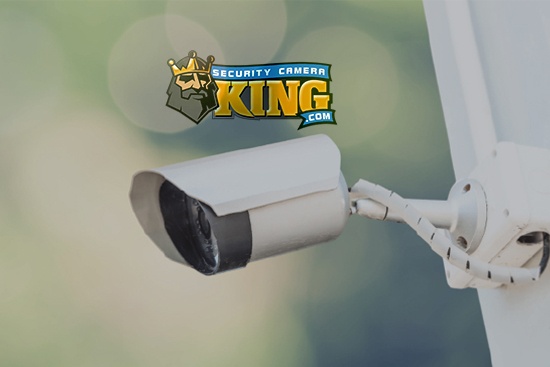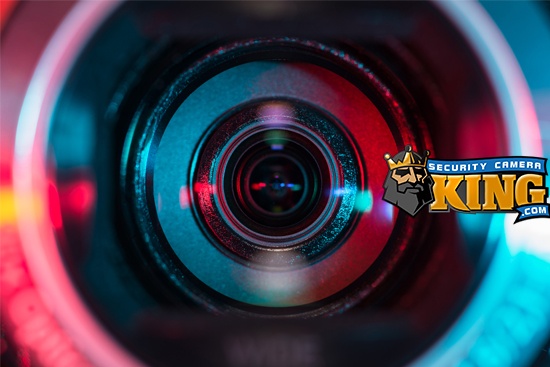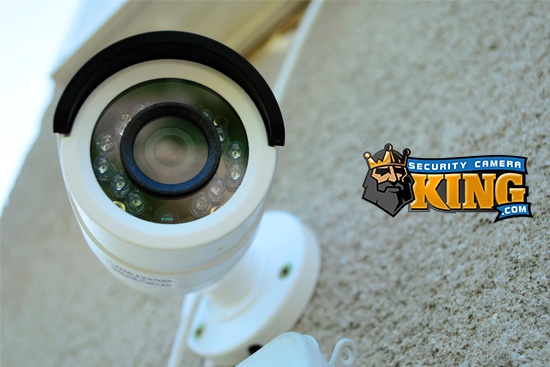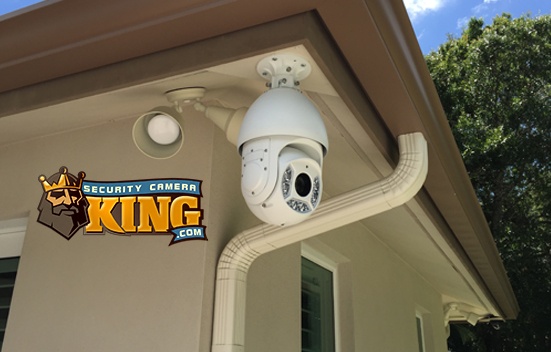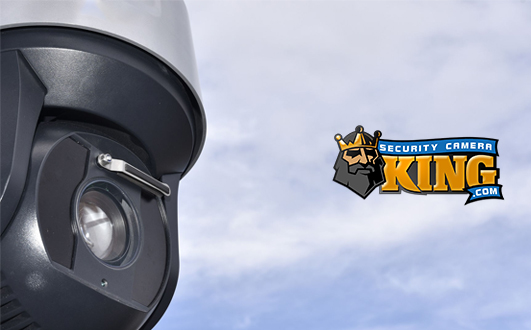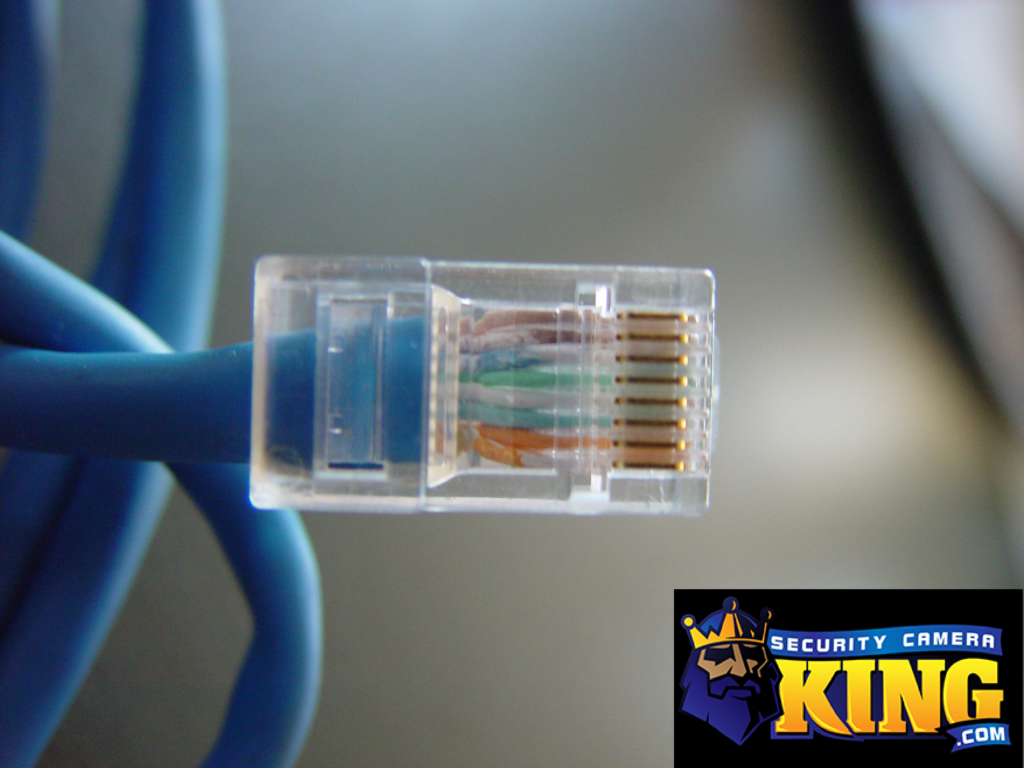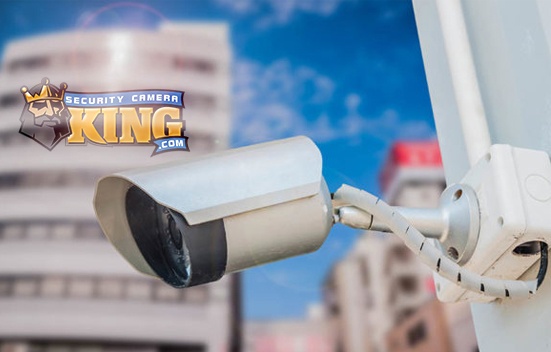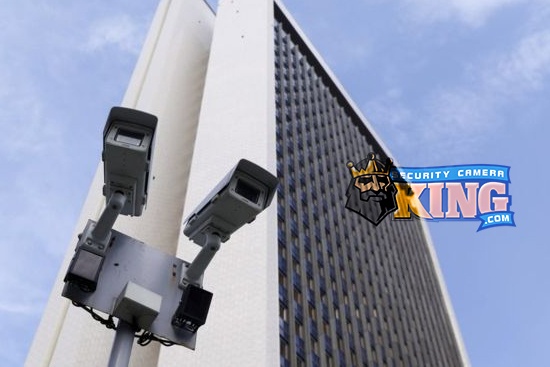5 Reasons for IP Cameras
Security Camera King is bringing you 5 Reasons for IP Cameras over COAX. Now we don’t want to paint the wrong picture, COAX cameras are still a viable choice given certain circumstances and the technology has come a long way. This article and accompanying video are not intended to show a clear winner between IP and COAX, but rather show 5 Reasons for IP Cameras and their usage case scenarios when they would be best, and what to expect from them!
We get asked about this concept every single day because it is one of the most important choices one can make when deciding to install CCTV at a location. What type of equipment should one invest in? Ever since the advent of IP cameras, this has been a deciding point for many, and today we want to help clear up some of the info. So first let’s cover some differences.
What is even a COAX camera? Well, a COAX camera is one that sends either analog or digital signals using an analog cable to a device called a DVR. DVR is short for ‘digital video recorder’, and they work with COAX cameras to record their incoming video to a digital device, such as a hard drive.
IP cameras, on the other hand, utilize Cat5 e and cat6 ethernet cables to digitally transmit data over a computer network. This is most often back to an NVR, network video recorder, but an be used with Hybird DVRs capable of accepting IP cameras as well.
When considering the switch to IP cameras, there are many factors to keep in mind. Read the following list and come up with some answers to these questions.
- How many Cameras can the recorder work with
- What is the maximum resolution the recorder can work with?
- What is the maximum resolution of the cameras you have right now?
- How old is your current DVR? Is it a newer model within the last 2 Years?
- How much footage are you getting (in time or days) versus how much do you need or want?
- To add to the point above, how much HDD Space can your DVR handle.
- How accessible would the location be for running new cabling?
- Will you need to hire an installer, or are you a CCTV pro?
- Do you have basic computer networking skills, or have an IT person that can perform these tasks?
There are probably a million other questions you could ask and answer to help you decide if you should Switch to IP Cameras. Let us go over what we have listed here to give you a good idea of what might work for you. Always remember to contact one of our Sales Pro’s if you’re looking to upgrade before your purchase. Our representatives can help you determine the products that can work with your existing equipment should an option be available, and offer compatibility guarantees.
The First 4 items on that list are somewhat related and a big factor in making the choice to switch to Ip cameras. You don’t want to lose coverage areas, so you’d need to make sure it’s within your budget to purchase a system that has at least close to as many cameras as you currently have. While we offer the best prices out there, generally IP cameras are more expensive than their coax counterparts. Additionally, if you’re looking to upgrade resolutions you need to know the maximum capabilities of your current cameras and recorder. It might not be very wise to shell out a large amount of money to cover IP cameras if you end up with exactly the same visual quality and the same or fewer cameras. Along with all of this, the age of your recorder is also important. Many newer DVRs produced within the last several years are able to utilize IP cameras. If you only need to cover a smaller area or upgrade a few key spots, you might not have to upend your current installation to add a few cameras.
Older recorders hold less hard drive space, but might get the same amount of footage as a newer recorder, recording at a higher resolution that has more HDD space. The image quality, framerate you need, and amount of footage in days you require should be information you give to a sales sport so they can help you determine if it will be worth it to switch to IP. If you are doing a full conversion, you’ll likely also need to pay for an installer and for cabling to run. Make sure your location is ready for the downtime this might result in. Since IP cameras use the same computer networking protocols and systems as any network device such as a PC, you’ll want to ensure you have a PC on-site, and someone who is familiar with managing a computer network to help set up system configuration.
Lastly, IP cameras and Recorders called NVRs to have the most advanced features available on CCTV systems today. If any of the following interest you, you might be a good candidate for IP cameras:
- AI Enhanced Permiter protection
- Human and Vehicle Detection
- Facial Capture and Recognition
- Thermal
- Active Deterrence
- License Plate Detection, Recognition, and Logging
- Dynamic control on a per-camera basis.
IP cameras are definitely an amazing choice for those looking to have access to the most cutting-edge CCTV tech and are a no-brainer if you’re coming from a position where you absolutely need an entirely new CCTV system. However, it’s worth considering other options if you have a semi-modern, well-functioning COAX system currently installed. Again, always call in for advice from the leading industry pros who can help you determine the best course of action.
Check out our video as well, on the top 5 reasons to go with IP!
Thanks for joining us today as we talked about when it’s a good idea to convert to IP cameras. For any questions on product compatibility, availability or any other information don’t hesitate to give our Sales Pro’s a call at 561-288-5258 . Don’t forget to subscribe to our YouTube Channel for more Tutorials and CCTV info. Until Next time, Stay Safe!
Related: What’s the difference between DVR and NVR?
Related: What’s the difference between H264 and H265?
Related: IP PTZ Security Cameras – All There is to Know
Related: Resolution, and why does it matter?
Related: What are active deterrence cameras?
Find Us On: Facebook | Twitter | YouTube

